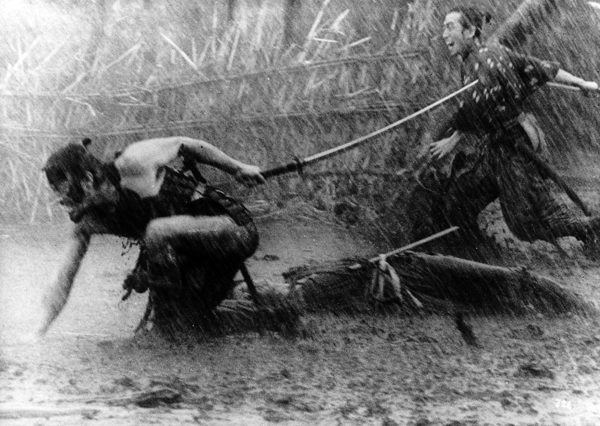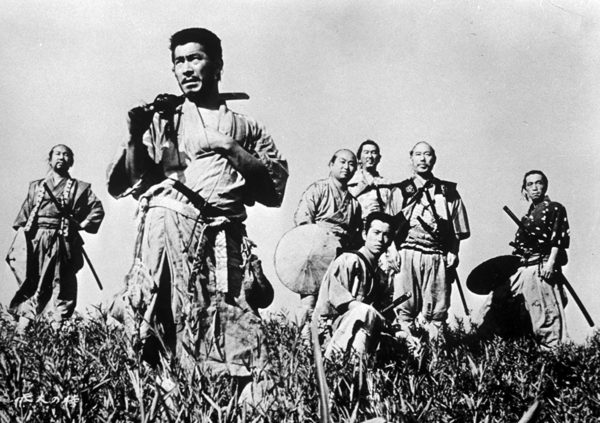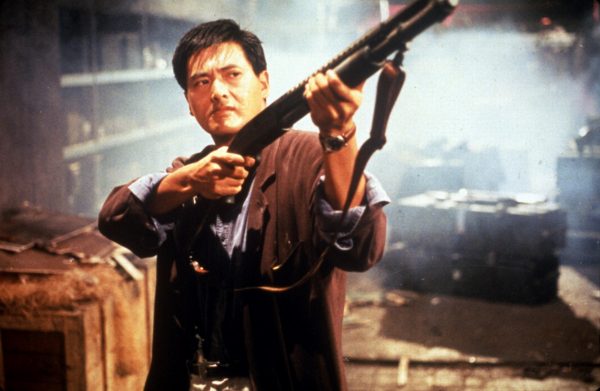Tom Jolliffe looks at the greatest action directors of all time…

The action genre has never particularly had the greatest respect associated with it. Maybe there’s a feeling that they’re dramatically anaemic, or sometimes intellectually inferior, but this isn’t always the case. It’s a genre that doesn’t always have consistent specialists, because certain directors who have dipped in and out of the genre, have often wanted to do more thematically engaging subjects. Still, there have been some masters of the genre.
The thing is, there’s mastering an action scene and plenty of directors have done that. It takes an extra special level to do so and to make the story dramatically engaging as well. If I think of Michael Bay, whose gift for Bayhem and penchant for practical destruction is commendable, he’s got no gift for dramatic subtlety.

There were a number of directors who really revolutionised the way action films were shot and cut, and did so whilst simultaneously telling engaging stories. Think of John Ford’s classic Westerns. Westerns and Gangster films seemed to be that definitive action movement in the early days of Hollywood sound era cinema. The first for me who really hit onto a rhythm and gift for the set piece that has not been improved upon yet, was Akira Kurosawa from Japan. Seven Samurai is essentially the blueprint to every big Marvel film you see today. It’s indescribably better on every level of course, but Kurosawa struck upon a gift for pacing an action scene and perfectly utilising his cutting to create a rhythm. This was all secondary of course to creating engaging characters you care for. That is almost always the key, but certainly, watching Seven Samurai (and then Hidden Fortress, Yojimbo and Sanjuro) is like looking into the future.

Step forward into the 60’s and another couple of key masters of the genre were Sergio Leone and Sam Peckinpah. Leone’s films were always masterfully shot and his strong silent heroes always allure us quietly and enigmatically into caring about their plight. Leone mastered the pause. The build up. He didn’t always do frantic, but his action sequences were heavy on tension. It brings to mind something that was once said of Eric Clapton (dubbed slow hand) as a guitarist. It wasn’t always the notes he played, but the space in between that made his sound so unique and helped stand him alongside the rising show-boaters of the late 60’s onward. Leone’s gift wasn’t those blistering punctuations of violence, it was the build up to it. Waiting 10 seconds for Clint to empty his gun in the space of a second.

Sam Peckinpah would prove to be very influential on a large number of directors. His unconventional editing and use of slow motion were really something that would forever alter the shape of action cinema from then on. The gloriously balletic violence of the Wild Bunch finale is awe-inspiring. Whilst few of his films matched up to that one beyond, a number including The Getaway and Bring Me The Head of Alfredo Garcia are still essentials of action cinema.

Through the 70’s, we had a mix of really great action specialists. Walter Hill, who got his start with Peckinpah, produced a number of really well crafted action films like The Warriors, Hard Times, and The Driver. Like a lot of great action specialists some of his weaker works in his latter career sometimes overshadow his brilliant opening 7 films (48 Hours proving particularly iconic). A breakaway into more lighthearted fare with Brewsters Millions and Crossroads seemed to permanently affect his action chops. Even if there’s plenty of impeccable action delivery in films like Red Heat, Extreme Prejudice and Last Man Standing, there isn’t quite the same level of characterisation.

At a similar time, William Friedkin was also rising, and his gift for thrilling, visceral action did not go unnoticed, with The French Connection mixing blunt brutality in gun fights with iconic car chase theatrics. Later, films like The Sorcerer and To Live and Die in L.A were also thoroughly underrated action masterclasses with engaging characters. Friedkin jumped between more genres than Hill for example. Following in their wake was James Cameron whose action work from The Terminator up to True Lies was as good as anything you’ll see. Once his fascination moved toward technology over character, his impact waned (though ironically boomed in financial matters).

The 80’s saw a few key figures in action cinema. John McTiernan certainly throws his hat into the ring with a twosome like Die Hard and Predator. Paul Verhoeven’s gift for comically extreme violence and wry wit on Sci-fi action gave the world Robocop and Total Recall. Richard Donner helmed a number of great films with cracking action and engaging characters including an entire Lethal Weapon franchise (the first two in particular were great) and not forgetting he’s done the definitive Superman film. George Miller had his iconic Mad Max franchise. More remarkable still was his ability to come back into his 70’s and still produce an action film that could leave your jaw scraping on the cinema floor. In that regard, he’s in a league of his own.

The 80’s were also a groundbreaking time in China and Hong Kong. The latter particularly saw a golden period in action films, a real breakaway from the very traditional stories seen from the mainland. Jackie Chan is of course known predominantly for his work in front of camera, but as a director he was a trailblazer. He certainly found a way to shoot and cut his action that flowed beautifully with his choreography, but additionally, his adept comical timing as a performer and an orchestrator was also second to none. His best films of his golden period were always engaging. Police Story is an excellent film and the first sequel likewise. They had all the action and comedic timing you expected, but an added level of drama that pushed them up a level. Sammo Hung likewise was one of the best directors of the era. Such was the level of expertise and influence these guys had (See also Yeun Biao) that they often took the reigns on everything from the direction to the choreography, to overseeing the cutting. From Project A, Dragons Forever, Wheels on Meals, Pedicab Driver, there were innumerable classic action films featuring the three sons.

Meanwhile, trade fists and feet for guns and doves. John Woo might now be a pastiche of himself, but in his pomp, few managed to blend the drama, poetic style and relentless action as beautifully as he. Better Tomorrow really kicked off a movement. Guys like Ringo Lam and Tsui Hark were also making a great mix of films around the era too but Woo really tapped into something with The Killer and Hard Boiled. Two of the greatest action films ever made which had a balance of drama and balletic action, and aided by exceptional actors. In essence, Hard Boiled starred the De Niro and Pacino of Eastern cinema. The action sequences themselves were probably the most jaw dropping ever committed to film and all achieved in camera.

From then on, certainly the Wachowskis kicked off a new found fascination in martial arts cinema and Eastern style choreography and shooting techniques, but they never quite lived up to the first Matrix afterwards, and not quite attaining that highest level of masterdom and influence (indeed they owed a lot to the likes of Woo in terms of their style). In recent times, Gareth Evans a Welsh director who made his name in Indonesian action cinema (as you do) has shown plenty of promise to be one of the next kings of action. What comes next, and whether he’s afforded the creative control required, remains to be seen. Chad Stahelski has done great things in the world of John Wick, and will hopefully translate that success away from there too. In terms of film-making techniques now, a shift away from practical stunts and effects has certainly diluted the impact action films seem to have. There are great specialists plying their trade in the direct to video circuit, like Jesse Johnson and John Hyams (who feels like a visionary without the audience he deserves), and are deserving of bigger budgets. Johnson in particular makes delightfully old school action films that feel like the down and dirty way they used to be made, proving with Avengement and Accident Man that he could stoke some fire back into the genre. The catch 22 of course, is when those step ups come, they often come with even less creative freedom than having no money affords. Still, there just aren’t enough of these specialists raising the pulse these days.
Who is the best action director of all time? Let us know your thoughts in the comments below or on our twitter page @flickeringmyth
Tom Jolliffe is an award winning screenwriter and passionate cinephile. He has a number of films out on DVD/VOD around the world and several releases due in 2020, including The Witches Of Amityville Academy (starring Emmy winner, Kira Reed Lorsch) and Tooth Fairy: The Root of Evil. Find more info at the best personal site you’ll ever see here.










